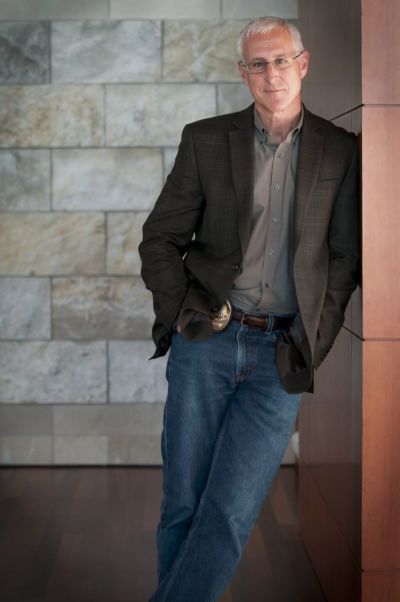3 Things First Responders Can Teach Christians About Engaging Culture

Throughout Christian history, followers of Jesus have debated about how we ought to engage an unbelieving culture.
Last month, Rod Dreher, the senior editor at The American Conservative, released The Benedict Option, with the subtitle, "A Strategy for Christians in a Post-Christian Nation." Dreher's book seems to have struck a nerve with Christ followers desiring to navigate the palpable tension between two seemingly contradictory Biblical truths. On the one hand, we are called to live and love those in the world (Matthew 5:43-48), while on the other hand told we are not to be of the world (John 15:19, Romans 12:2, 1 John 2:15). This in the world but not of the world idiosyncratic command is an important Christian directive, and Dreher has offered an excellent attempt to reconcile the tension.
I sympathize with his desire and I respect his effort because as a career first responder, I've also had to develop a strategy for engaging my culture while remaining "set apart." In fact, I think first responders can teach Christians a few things about how to engage culture:
Set a High Standard
The ethical expectations for first responders are often much higher than for other members of our society. While a misdemeanor arrest might not disqualify you from employment in another profession, a violation of this nature will likely result in your termination as a first responder, particularly if you're employed as a police officer. Moreover, as public servants, we are routinely required to risk our lives. This high expectation of selfless duty and ethical excellence sets first responders apart, but it doesn't alienate us from the people we serve; instead, it equips us to engage the culture. When we acknowledge a high standard publicly, then repeatedly demonstrate our willingness to do everything we can to serve others and uphold that standard, we gain the trust of our community. This standard doesn't separate us from culture; it gives us the basis for daily interaction.
In a similar way, Christians must acknowledge and obey the high Biblical standard if we hope to gain the trust of the culture. We must remain "set apart" in this way, and avoid embracing cultural norms that deviate from Biblical teaching. But like first responders, we must remember that the standard doesn't separate us from culture. Instead, it gives us a basis for daily interaction.
Engage in Intentional Training
First responders are habitual trainers. Our training schedule is rigorous and it requires us to retreat from those we serve, at least long enough to acquire and refine the skills necessary to do the job. We usually begin with an intensive introductory training period (an academy or certification process), followed by regularly scheduled updates. Over the next twenty-five to thirty years, we'll spend thousands of hours training, separated from the very community we are sworn to serve. Our training sets us apart, but it doesn't alienate us from the culture. Just the opposite: this regular separation only better equips us to be in the world. An untrained first responder only makes a difficult situation more dangerous.
In a similar way, as Christians, we must take the time to prepare ourselves to better serve the culture and represent Jesus. This will require us to retreat on occasion to get the training we need, and this will also require us to rethink our time of preparation. First responders are intensely practical; we role-play and rehearse the scenarios we will eventually encounter. Christians need to become more practical as well. Our efforts to train and prepare ourselves will require us to be set apart, but it won't alienate us from the culture. Instead, it will better equip us to be in the world. An untrained Christian only makes a difficult situation more dangerous, and in these challenging times, we need to be better prepared to share the truth of Christianity.
Rely on the Strength of Community
First responders often spend more time with their professional families than they do with their personal families. Firefighters and medical first responders usually live together for extended periods of time, and many police officers serve 12 hour shifts with their work partners. But this time apart from the world, doesn't negatively impact our time in the world. Remember that much of this time together is spent training. In addition, it's in this setting that young members of our professional family learn from more senior first responders. We share "war stories" and help each other deal with the stress and possible disillusionment that sometimes accompanies this kind of work. Our first-responder communities are key to our survival.
In a similar way, the family and community of believers is critical to the survival and effectiveness of every Christian. We live in an age when weekly church services can be experienced alone online, but that limited experience won't properly equip us to engage the culture. We need the strength derived from relationships, conversations, and role modelling that occurs within Christian community. Our time apart from the world will help us survive our time in the world.
First responders understand how to navigate the tension between separation and engagement. We must resist the temptation to embrace one over the other; instead we must allow one to shape the other.
The Christian life is also an exercise in the counterintuitive practice of retreating to engage. We must withdraw from the unbiblical philosophies, passions and practices of the world as we actively engage it to offer a better alternative. We must withdraw repeatedly into our community to train, support and learn from one another so we can move intentionally into a world that needs Jesus more than ever before. Christians are still in the best position to be cultural "first-responders."





















